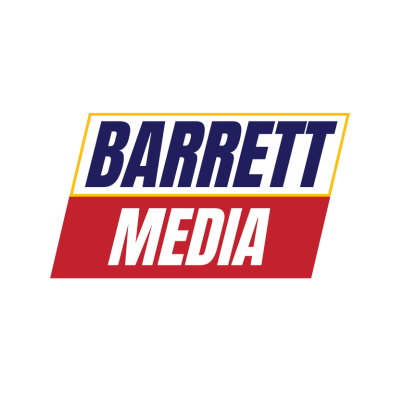As a self-proclaimed “nerd” who fell in love with talk radio at a young age, Jason Rantz grew up in Southern California listening to some of the most transcendent talents in the business. From Howard Stern to Jay Thomas, Rantz wanted to emulate the theatrical performances that he heard coming from his radio.
As a teenager, Rantz scored an internship with the iconic brand, XTRA Sports in Los Angeles. While he was there, he began hosting a kid-focused show that centered on the Los Angeles Dodgers. When Rantz broke into the business the emphasis was on the spoken word. The idea that content needed to be streamed or posted on social media was a futuristic thought that was not given any credence.
Now, radio hosts find themselves having to create content for multiple platforms. Whether it is a short video on Instagram or a Twitter poll, broadcasters do more than just talk for three hours and go home.
Facebook was just evolving when Rantz was in school, so he had a good idea of what role social media was going to play in the radio business. Now, as a full-time talk show host at Seattle’s KTTH, Rantz has fully embraced the evolution of radio as it relates to the tools and techniques that it takes to “be everywhere” and create exclusive content on multiple platforms at the same time.
Rantz recently spoke to BSM/BNM about how he has been able to evolve with the ever-changing radio landscape and the mistakes that he sees other broadcasters make when it comes to content creation.
Ryan Hedrick: Do you remember the first time a program director or one of your colleagues asked you to shoot a video with your phone for the purpose of creating content?
Jason Rantz: I do not actually remember anyone telling me to do it, I kind of just did it because that is where I realized we needed to be. I think it is a little bit of a difference because of my age. I am 39-year-old, so I am slightly different in the way of my generational view of social media. It did not catch me off guard, it was always second nature to me.
RH: Do you find that you have become more observant through the process and the evolution of what becomes news and what society deems as content?
JR: Whenever I am doing anything and I see anything that might make good radio or good TV that could become good radio, I will go ahead and pull out my phone and start recording or live tweeting. In a way it is a blessing because you always have access to good content, it is also a curse because you are never off.
RH – AT KTTH, what is the philosophy when it comes to producing digital content versus what goes on the air? Is there a particular emphasis placed on one thing or another?
JR: There is no such thing as better or more important, it is all equally important. You must be everywhere; you must be where everybody is. Anytime you are not in front of someone where they are, where you could make a difference and convert them into a fan or a P1 (people who listen to the radio more than any other) then it is a missed opportunity.
RH: What types of consequences can arise from not posting really good content that originates on the radio?
JR: You are wasting a lot of energy and effort. I could do a good segment or two on the radio and then it just goes off into the abyss. I do not want those 12 minutes to go away. If it gets into a podcast form and does not get downloaded, it really does not mean anything. That is the opportunity that social media provides. It is not like any radio station across the country has a lot of money to put into marketing efforts. Whenever you do not put really good content in front of people that they did not know exists, you are wasting time, effort, and opportunity.
RH: Do you feel that radio as an artform is being overlooked in favor of the other technology that is being used to create some of the content that we see on social media?
JR: I do not think that it is being overlooked, I just think it is crowded with the people that are not particularly good. I think when anyone can create a podcast or hop on YouTube or create a Twitter account and call themselves a journalist, you are just crowding the marketplace. I think it is more difficult than ever to get good content spotlighted because it is just crowded by bad content. They are good people out there that are creating some really good content. I like competition from good competent people, I get annoyed that there are a lot of incompetent people out there that are crowding the marketplace.
RH: How do you stay connected to the changes in the digital world and how do you implement those changes into your day-to-day duties?
JR: You just must be aware of what is going on. There have been people that I have seen that just come in and do a show and leave and are completely disengaged. If you are paying attention to what is going on you will start to pick up on things. If you are curious and you ask questions you can stay connected and relevant to the changes going on around you.
RH: What should young broadcasters know about what they are going to have to do to stay relevant and evolve with the business?
JR: Be everywhere and be willing to experiment and be willing to work and to get stories. I get the sense from the younger generation, not necessarily in this business but everywhere, that they are not willing to put in the work, but they want the extra perks. If you are trying to get into an industry that is hard to break into there is no such thing as work-life balance. If you are trying to go far, you are going to have to put the life part on hold for a little bit and focus on the work.







